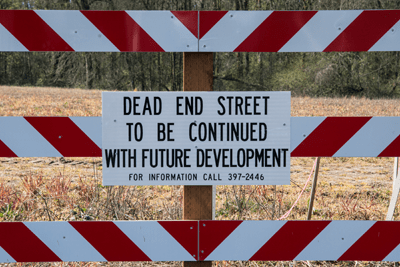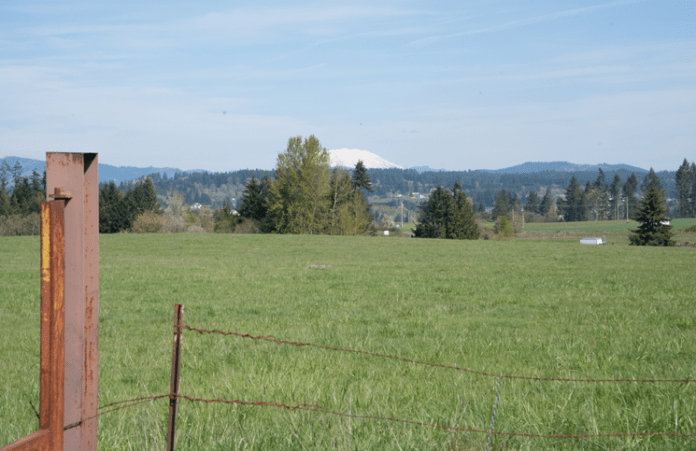Two very different decade-plus efforts are about to converge in north Clark County.
Since the turn of the century, leaders have been pushing to improve roads, sewers and land-use rules to boost business development in what they call the “Discovery Corridor” – the stretch of land that extends from Salmon Creek northward to La Center. For at least as long, the Cowlitz Tribe has been seeking reservation lands in the same area, as a key step toward building a casino.
Now local leaders say investments in the Discovery Corridor are paying off, with a $30 million sewer upgrade halfway done, and signs of ever more business investment in the county’s northern half. And in March, the Cowlitz secured a 152-acre reservation near La Center, 15 years after the tribe received federal recognition.
A number of municipalities and local business groups – as well as another casino-owning tribe – have sued to prevent the Cowlitz from building a casino, but local Cowlitz leaders are closer than ever to realizing their dream of building a 134,000-square-foot complex west of La Center. That fact is creating new questions – and the possibility of new opportunities – for proponents of economic development in the Discovery Corridor.
Cowlitz Tribe on economic development
Cowlitz leaders did not respond to Vancouver Business Journal requests for comment, but tribe Chairman William B. Iyall recently spoke at length with the Indian Country Today Media Network about the economic development he believes is coming to north Clark County.
 “We are standing on the threshold of the future,” Iyall said, adding that the tribe is hoping to pursue financing and to break ground on 152-acres by the end of this calendar year. “We’re in the process of hiring a contractor. We’ve hired an architect.”
“We are standing on the threshold of the future,” Iyall said, adding that the tribe is hoping to pursue financing and to break ground on 152-acres by the end of this calendar year. “We’re in the process of hiring a contractor. We’ve hired an architect.”
The 3,000 members of the tribe will not be the only ones to benefit from a casino, according to Cowlitz estimates, which say about 3,000 temporary construction workers would help build a massive complex that would also include restaurants, lodging and entertainment space.
About 1,500 people would work there year-round once the complex opened, the tribe estimates.
Many in La Center’s established card rooms are worried about how competition with a massive casino would affect their business operations – and whether the development it brings will be exactly what the community wants. Nonetheless, the local government has opted to work with the tribe, to discuss expanding sewer service beyond the city’s boundaries to reservation lands.
Infrastructure key
“Infrastructure – I have a problem with that word,” said Brent Grening, CEO of the Port of Ridgefield. “A lot of people don’t know what it means. We’re talking about utilities, water, sewer systems and whatnot.”
And that collection of “whatnot” is just what’s been holding development back in north Clark County. Just as the Cowlitz Tribe will need sewer service to build its casino, businesses, nonprofits and other groups that wish to build up and down the I-5 corridor will need sewers and quality highway access to justify their investments.
“Go back to the year 2000, the turn of the century, we were talking about the Discovery Corridor area, we saw a bunch of growth pressing up against the corridor and some people may have thought it was going to happen instantaneously – but when you build anything there’s ground work,” Grening said.
“Infrastructure, roads, water, sewers – even land use – those are big things,” he added. “Making investments to get those right, ahead of growth, allows us to drive quality and get quality.”
Clark County can already count measurable returns from the investments that have been made, Grening said, citing changes at Washington State University Vancouver, the Salmon Creek interchange and, more recently, Clark College’s north county campus plans.
“If you go back 10 years, you’ll see that millions of dollars of investment has occurred, and more is coming,” he said.
Grening noted that there’s still more investment needed to finish the sewer improvements that have begun, and to fund the 179th Street interchange.
For a long time, the Discovery Corridor was defined by what it needed: Better highway interchanges, improved sewers, updated land-use laws. Increasingly, it’s now defined by what it offers: Freeway access, infrastructure and land ready to be developed.
A public process
John Bockmier, a public affairs consultant who represents many La Center card rooms, pointed out that all of the infrastructure investment that underpins the Discovery Corridor has come about through a public process, guided by elected officials who answer to Clark County residents. Bockmier explained that he’s nervous about the ways a Cowlitz Casino could change the character of north Clark County – in large part because tribes, as sovereign nations, don’t have to follow state or local land-use rules on their reservations.
“They have an opportunity to develop their land without the permitting process that others have to go through,” Bockmier said.
“With the Discovery Corridor,” he added, “the idea was that all these north Clark County communities would band together. If the casino does gain final approval, it’s going to change the development pattern that these communities have worked on for so long.”
In a worst-case scenario, Bockmier said he could imagine the tribe inviting in Walmart – which has faced fierce resistance to building in some local communities – or allowing poor-quality strip-malls to pop up on its reservation. However, he holds out hope that his worst fears will not be realized.
“It could create challenges, but that does not mean it will,” Bockmier noted.
Converging efforts
Though many community leaders have opposed a proposed Cowlitz Casino, as the development becomes ever more likely, some are saying it’s time to work together.
For the city of La Center, investments the tribe has discussed making in sewer service and road upgrades could benefit residents and local businesses – even as a casino casts a shadow of uncertainty over card rooms that bring in millions of dollars in taxes every year.
That conundrum has led longtime La Center Mayor Jim Irish to walk a careful line, seeking opportunities to ink agreements with the tribe even as he’s spoken against the casino.
“We have worked to expand our urban growth boundary out to the junction to diversify our economy by attracting new industrial and commercial businesses,” Irish said in an online statement. “Careful thought is being given on proposals addressing the impacts and growth to the city by the proposed Cowlitz Casino resort.”
If the Cowlitz Tribe does build a casino, Grening said, it may be time for Discovery Corridor proponents to see the project within a grander context.
“You have a casino, which is an entertainment venue,” Grening said. “It’s the second major entertainment center in the corridor. The first is the fairgrounds and the amphitheater together … You have a golf course in there too. Do we want to look at all this together, to coordinate? All development has its pros and cons. If this casino comes, what can we do to work with it? There’s opportunity here.”
Or, from Bockmier’s more pessimistic perspective, “Does this fit with the vision we have for Clark County? No,” he said, “but we will make the best of it.”



